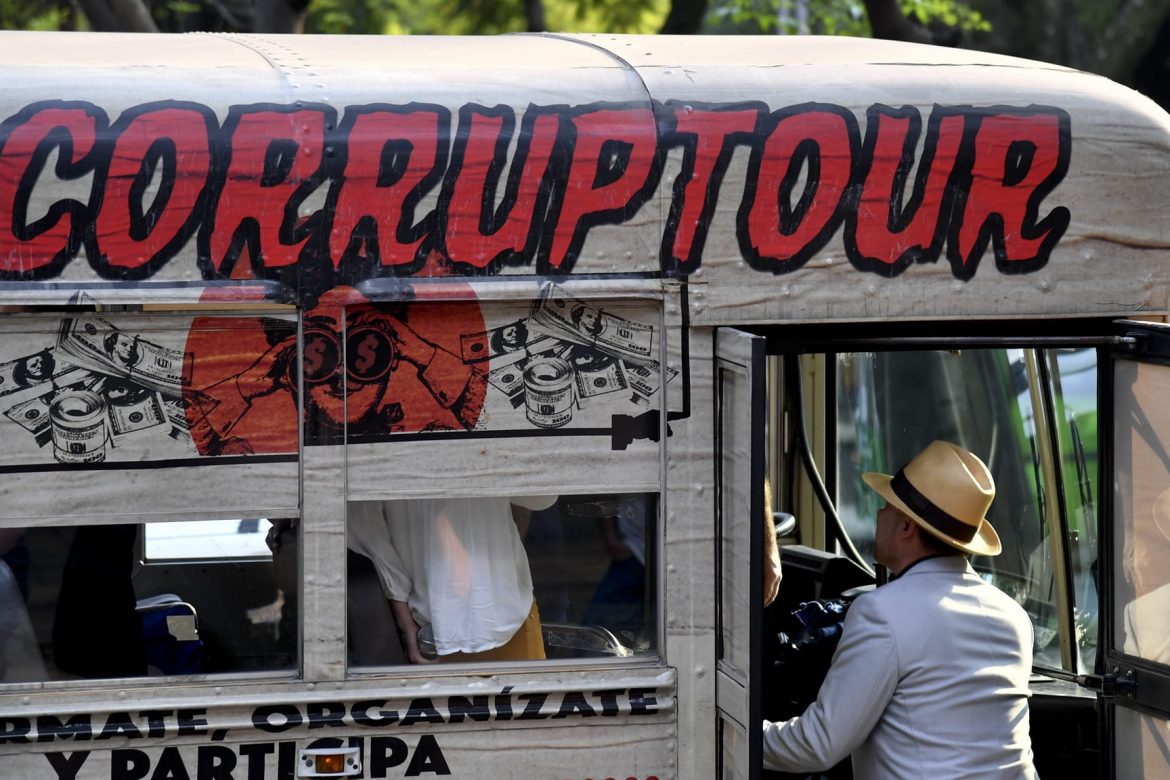This material belongs to: The Guardian.
The Institutional Revolutionary party claims it fired Santiago Nieto for discussing a case with the press, but Mexicans weary of government scandals are outraged.
Over the past year, Mexico’s ruling party has been embroiled in a string of scandals, including accusations of wild overspending in regional election campaigns, systematic malfeasance by state governors and an attempt to gut a newly-created national mechanism to fight corruption.
So the announcement that the Institutional Revolutionary party (PRI) had fired the country’s top electoral crimes prosecutor for discussing an investigation with the media has been greeted with skepticism and incredulity.
Santiago Nieto – whose investigations had put the PRI on the defensive – was fired last week for unspecified “code of conduct” violations.
Nieto’s office had been investigating allegations that the disgraced Brazilian construction company Odebrecht improperly pumped money into the PRI’s 2012 general election campaign.
In an interview with the newspaper Reforma, Nieto said that the campaign’s point man for international relations, Emilio Lozoya, had asked the prosecutor to publicly pronounce his innocence in the affair. Lozoya also reminded Nieto that his father was a prominent former PRI cabinet member, the prosecutor said.
Shortly after the article appeared, Nieto was forced out.
His dismissal – less than a year before presidential elections – has sparked outrage in Mexico, where politicians have seemed unmoved by growing frustration with corruption.
Throughout the administration of president Enrique Peña Nieto (no relation to the prosecutor), accusations of political corruption have hit the headlines with disturbing regularity.
Yet prominent politicians appear keen to downplay the issue. Peña Nieto recently suggested that Mexicans blame corruption any time they have a problem, while the country’s comptroller Arely Gómez suggested that perceptions of corruption were exaggerated by social media.
Ordinary people consistently cite corruption as a major problem in their lives, however. Mexico ranks 123rd on Transparency International’s most recent corruption perceptions index – tied with Sierra Leone and Moldova, and 12 spots worse than its rank the previous year.
The Senate, where the PRI and its allies hold 62 of the 128 seats, has missed the deadline to name a specialised anti-corruption prosecutor, meaning that campaigns for the July 1, 2018, election will begin with an interim attorney and no anti-corruption or electoral crimes prosecutors.
Government loyalists have said that Nieto was fired for discussing an active investigation. Legal experts say that could technically be justified, but sensitive criminal investigations are commonly tried in the media, and bureaucratic incompetence and violations of “codes of conduct” are seldom punished.
Last year, the country introduced a new National Anti-Corruption system after investigative journalists found Peña Nieto, his wife and his finance minister had purchased properties from crony contractors.
Activists, however, say the system is hobbled by the lack the Senate’s refusal to name an anti-corruption prosecutor.
Among the most high-profile corruption cases which have been held up is the investigation into Odebrecht, which has been accused of funding political corruption across Latin America.
Cases against politicians caught in the Odebrecht web have produced convictions in across the region, but so far, none in Mexico.
“Odebrecht reflects the impunity in Mexico,” said Luis Pérez de Acha, a lawyer and member of the citizen committee overseeing the National Anti-Corruption System. “It’s a no-go topic.”
Lozoya has declared himself “absolutely innocent” of any wrongdoing and announced plans to sue Nieto. On Friday, Nieto announced he would not seek to be reinstated in order “to strengthen the institutions and quality of the electoral process.”
Government supporters have also cast themselves as the upholders of due process in case. When the PRI tried to impose a secret vote on the Nieto affair on Wednesday, the party’s senate leader Emilio Gamboa said: “What are work looking for? We’re looking for legality.”
Earlier this month Gamboa was revealed to have used a government helicopter to go and play golf. He faced no disciplinary action.
Ilán Semo, historian at the Iberoamerican University said the PRI’s use of the language of legality demonstrates a “double discourse,” in which a show of formality was deployed as a proxy for serious investigations of corruption allegations.
“The PRI is very formal, but it’s not serious,” said Ilán Semo, historian at the Iberoamerican University. “It’s one thing to be formal, with a discourse of a formal country where the law is obeyed,” he added. “But it’s another thing to be serious.”
 info@anticorr.media
info@anticorr.media

